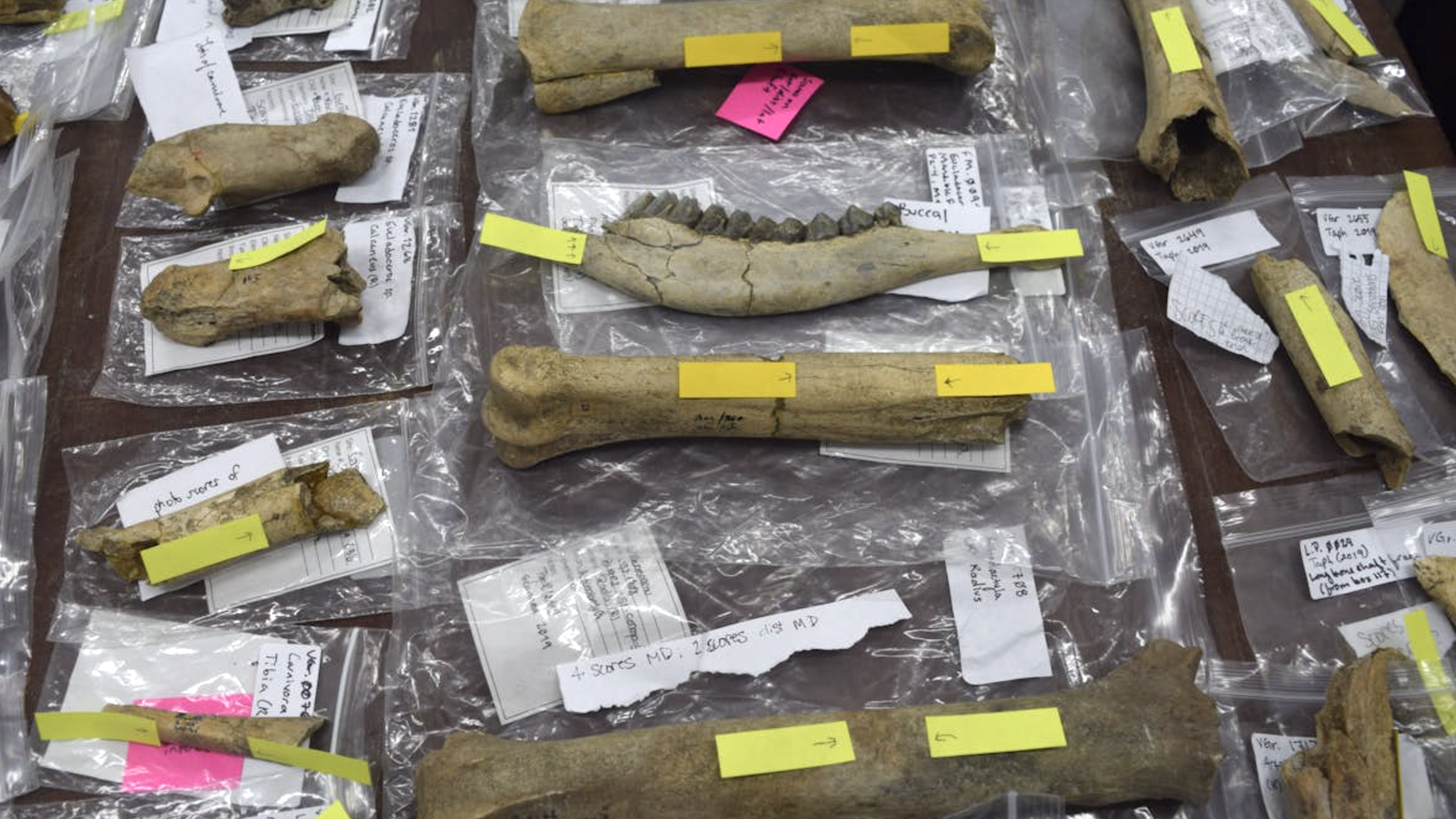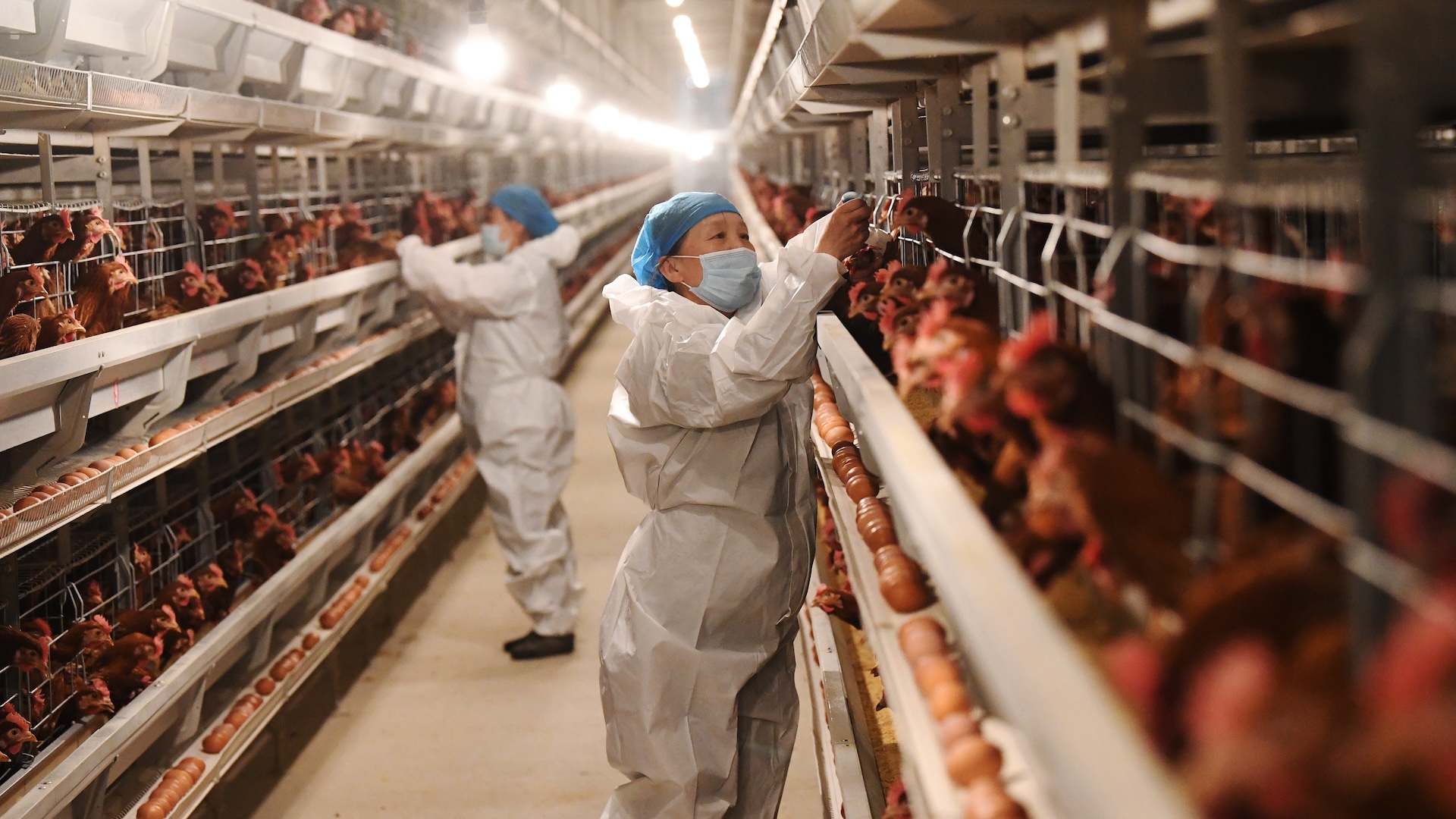
Do Animals Typically Think Like Autistic Savants? (Op-Ed)

Marc Bekoff, emeritus professor at the University of Colorado, Boulder, is one of the world's pioneering cognitive ethologists, a Guggenheim Fellow, and co-founder with Jane Goodall of Ethologists for the Ethical Treatment of Animals. This essay is adapted from one that appeared in Bekoff's column Animal Emotions in Psychology Today. He contributed this article to LiveScience's Expert Voices: Op-Ed & Insights.
Over the past few years — and at a meeting of the Animal Behavior Society this past summer —a number of people have asked me to address Temple Grandin's claim that nonhuman animals (animals) typically behave like people with autism. She also claims that autism helps her understand and empathize with animals, who supposedly think in pictures, better than people without autism.
I often wonder about these claims because I know numerous people without autism who deeply care about other animals based on shared feelings — deep empathy — and who use these feelings to work selflessly on animals' behalf. This is not to say Grandin does not connect with other animals, but rather I'm not at all convinced she does so more deeply than many others. [ People with Autism More Likely to Hear Colors, See Sounds ]
Are animals autistic savants?
Some symptoms that are frequently associated with human autism include difficulties in social interactions and relationships, difficulties communicating with others, a lack of interest in sharing enjoyment and a lack empathy for others. Concerning the possibility of autism in nonhumans, I could only find one study that rigorously addressed the question, "Are Animals Autistic Savants?," and the results do not support Grandin's claim. An international and interdisciplinary group of renowned scientists — Giorgio Vallortigara at the Centre for Mind/Brain Sciences at the University of Trento and his colleagues Allan Snyder, Gisela Kaplan, Patrick Bateson, Nicola Clayton, and Lesley Rogers — reviewed data spanning studies of the neurobiology and cognitive capacities of nonhuman animals and concluded, "we disagree with the claim that animals are similar to autistic savants." Their entire essay is available online and interested readers are able to read the details if they choose. A concise and useful summary is also provided here.
In a review of the above study, University of New England (Australia) animal behavior and neurobiology expert and co-author Lesley Rogers notes, "You may find some animals are autistic but it's not characteristic of animals in general."
There also is a response from Grandin in that essay, where she notes, "Since animals do not have verbal language, they have to store memories as pictures, sounds or other sensory impressions. Sensory-based information by its very natureis more detailed than word-based memories. As a person with autism, all my thoughts are in photo-realistic pictures. I can search my own brain, like using Google, for images. As I read about the cognition experiments, I saw the birds performing in my imagination like a virtual reality computer system. The main similarity between animal thought and my thought is the lack of verbal language."
I don't fully understand Grandin's conclusion or what she means by lacking the capacity for verbal language because she obviously does not lack verbal language. I and countless others have heard her give talks at a wide variety of venues and I have talked with her about the plight of food animals on a number of occasions.
While it is true that other animals do not have human-like verbal language, there is increasing evidence that many animals do, in fact, have very sophisticated systems of communication that share numerous characteristics with what researchers call language. I present a discussion of this in "Dr. Dolittle To the Rescue: Animals Do Indeed Have Language," a review of the groundbreaking research by esteemed scientist, Con Slobodchikoff at Northern Arizona University (and others), whose long-term and detailed studies of prairie dogs provide compelling data that these wonderful rodents, as well as many other animals, do have language and have a lot to say to one another.
While I was writing this essay I was informed of another recently published article in Nature entitled "Best way to kill lab animals sought." A version of this title for farm animals could easily be, "Best way to kill food animals sought." While there surely are better and worse ways to kill nonhuman (and human) animals, it's important to consider why we are doing this in the first place.
Do animals typically behave as autistic humans?
There's no evidence that nonhuman animals typically behave as people with autism. However, from time to time, there are reports of wild animals behaving as if they have recognized psychological conditions, including autism, that are not typical of their own or other species. And, there are many reports of animals suffering from conditions such as post-traumatic stress disorder (PTSD).
Usually the observations are based on captive and companion animals, but during a long-term field project on the behavior of coyotes living in the Grand Teton National Park outside of Jackson, Wyo., I did observe a coyote pup who behaved as if he might have autism. I also noted that because wild animals don't get the medical care to which our companion animals are privy, those who suffer from various psychological disorders most likely die, as do those who suffer serious physical injuries and illness. So, my guess is yes, wild animals can indeed suffer from PTSDand other psychological disorders under natural conditions and that as time goes on we will learn more about the extent of these maladies. I strongly encourage field workers to report instances of psychological trauma for the animals they study. Evolutionary continuity supports the idea that nonhumans, like humans, do suffer from psychological disorders.

Another reason to revisit Grandin's claim is the emergence of recent studies on animal cognition and discussions about how animal brains work very similarly to our own. To be fair, Grandin has indeed made a positive difference in the lives of relatively few food animals as they trod along what she calls the "stairway to heaven" on the way to their unnecessary and horrific death. However, the percentage of animals who are helped by using the so-called stairway to heaven is infinitesimally small compared to the vast number of these sentient beings who wind up on the end of a fork. And, just because those "lucky few" supposedly suffer less than others who don't use Grandin's purported more humane passage to their horrific death, this does not mean they aren't experiencing deep pain.
Solet's face it, no animal who winds up in the factory farm production line has a "good" or even "moderately good" life, one we would allow our dogs or cats to experience. In fact, their lives are marked by constant fear, terror and anxiety. So, "a slightly better life" isn't really "good enough," and as Grandin continues her important work I'd like to see her encourage people to stop eating factory-farmed animals and call attention to the fact that none of the ways in which they're currently treated, including how they're bred, reared and transported to slaughterhouses, even borders on what should be acceptable and called "sufficiently humane."
"Humane slaughter" allows for interminable pain, suffering, and death and simply must be stopped. Grandin has chosen not to use her deep empathy to end the suffering of food animals.
Humans must change our ways, phase out the use and wanton and rampant abuse of other animals, and really use what we know from detailed scientific research — Other animals are sentient and feeling creatures, they suffer greatly at human hands, and each and every one of us can do something to end that suffering right now.
Furthermore, careful observations in the case of nonhumans, who never will be able to tell us verbally what they're thinking and feeling, show clearly that they are smart and sentient and care very much what happens to them, their families and their friends.
Absent verbal language, other animals plainly tell us what they need and what they want and what they are thinking and feeling, and we need to listen carefully to them. Like us, they want to live in peace and safety, and it is not asking too much of us to make this a reality for the billions of other animals who suffer each year because of what we choose to do to them.
Bekoff's most recent Op-Ed was "In the Wild or at Home, Does an Aging Animal's Status Change?" This article was adapted from "Do Animals Typically Think Like Autistic Savants?" in Psychology Today. The views expressed are those of the author and do not necessarily reflect the views of the publisher. This version of the article was originally published on LiveScience.
Sign up for the Live Science daily newsletter now
Get the world’s most fascinating discoveries delivered straight to your inbox.










